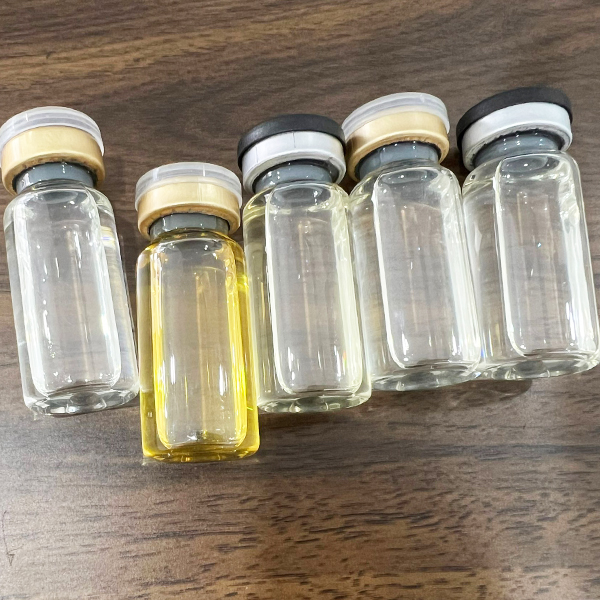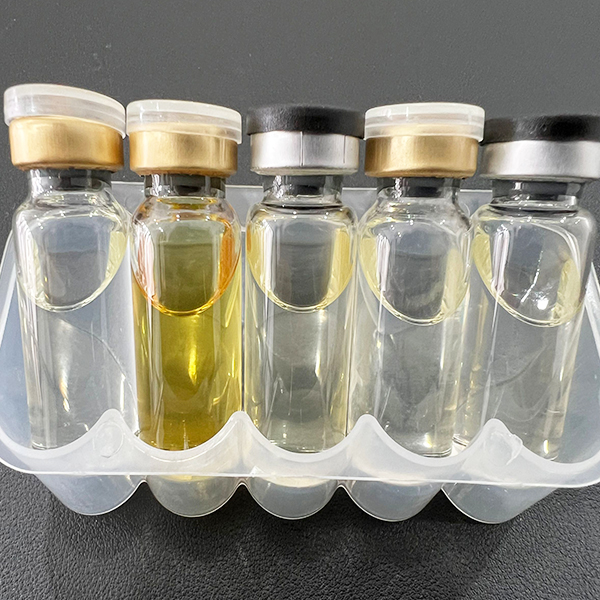Phenibut is a synthetic compound that was developed in Russia in the 1960s as an anti-anxiety medication. It is chemically similar to GABA (gamma-aminobutyric acid), a neurotransmitter that plays a role in reducing neuronal excitability throughout the nervous system. Phenibut is often used as a nootropic and anxiolytic, meaning it has cognitive-enhancing properties and can help reduce anxiety and stress. It is available as a supplement in some countries but is classified as a prescription medication in others.
Phenibut is known for its mild sedative effects and ability to improve mood, alleviate stress, and enhance cognitive function. However, due to its potential for abuse and the risk of withdrawal symptoms, it should be used cautiously.
How Phenibut Works
Phenibut primarily works by interacting with the GABA-B receptors in the brain. GABA is a neurotransmitter that inhibits neural activity, promoting relaxation and reducing anxiety. Phenibut mimics the effects of GABA by binding to these receptors, thereby inducing calming effects. Additionally, Phenibut may also have a mild stimulant effect due to its action on dopamine receptors, which can enhance mood and cognitive performance.
GABA Receptor Activation (GABA-B):
Phenibut binds to GABA-B receptors, leading to a reduction in anxiety and promoting relaxation. This action can help alleviate feelings of stress, tension, and nervousness.
Dopamine Release:
Phenibut may increase dopamine levels in the brain, which contributes to improved mood, motivation, and cognitive performance. This is one reason why Phenibut can also have a mild euphoric effect.
Neuroprotection:
There is some evidence suggesting that Phenibut may have neuroprotective properties, helping to shield the brain from oxidative stress and supporting long-term cognitive health.
Benefits of Phenibut
Anxiety Reduction and Stress Relief:
Phenibut is most commonly used for its anxiolytic effects. It can significantly reduce anxiety, promote a sense of calm, and improve emotional resilience, particularly in high-stress environments.
Improved Sleep Quality:
Due to its calming effects on the brain, Phenibut is also used by some individuals to improve sleep quality. It can help those who suffer from insomnia or disturbed sleep due to anxiety or stress.
Cognitive Enhancement:
Phenibut has mild cognitive-enhancing properties. Some users report improved focus, mental clarity, and overall cognitive performance, likely due to its effects on dopamine and GABA receptors.
Mood Elevation and Euphoria:
The increase in dopamine levels can lead to enhanced mood, reduced symptoms of depression, and a mild sense of euphoria or well-being.
Social Anxiety Reduction:
Some users take Phenibut to reduce social anxiety, as it helps them feel more relaxed and confident in social situations.
Neuroprotection:
Phenibut may have a protective effect on neurons due to its antioxidative properties, which can help protect brain cells from damage over time.
Dosage Guidelines for Phenibut
Phenibut is typically taken in oral form, either as a powder or capsule. The appropriate dosage depends on individual sensitivity, the reason for use, and the desired effect. It is important to start with a low dose to assess tolerance.
Typical Dosage:
250 mg to 1,000 mg is the typical dose range for Phenibut.
For mild anxiety or social anxiety, 250–500 mg may be sufficient.
For stronger calming effects or sleep support, 500–1,000 mg may be used.
Frequency:
Phenibut should not be taken daily for extended periods, as tolerance can develop quickly, and it may lead to dependence. It is typically used once or twice a week to avoid tolerance buildup.
Onset and Duration:
Phenibut typically takes 1–2 hours to begin taking effect, and its effects can last anywhere from 4 to 6 hours depending on the dose.
Tolerance and Dependence:
Tolerance can build quickly with regular use, and withdrawal symptoms can occur if the compound is abruptly discontinued after extended use. To avoid this, Phenibut should be cycled or used sparingly.
Stacking Phenibut
Phenibut can be stacked with various other nootropics or supplements to enhance its effects or counterbalance any potential side effects. Some popular stacks include:
With L-Theanine:
L-Theanine is a calming amino acid found in tea that works synergistically with Phenibut. It can help mitigate any overstimulation or jitteriness that may arise from Phenibut, promoting a relaxed yet alert state.
With Bacopa Monnieri:
Bacopa Monnieri is an herb known for its cognitive-enhancing properties. Pairing it with Phenibut may help improve memory and learning while reducing anxiety and stress.
With Rhodiola Rosea:
Rhodiola Rosea is an adaptogen that can help the body manage stress. When stacked with Phenibut, it can help reduce anxiety and increase overall resilience to stress.
With Ginkgo Biloba:
Ginkgo Biloba is often used to improve cognitive function and blood circulation. It can complement the effects of Phenibut by enhancing mental clarity and focus.
With Caffeine (Low Dose):
While caffeine and Phenibut have different mechanisms of action, some users stack them for a balance of energy and relaxation. However, it’s important to use caffeine in moderation to avoid overstimulation.
Side Effects of Phenibut
Phenibut is generally considered safe when used in moderate doses and not for prolonged periods. However, improper use or high doses can lead to side effects, including:
Drowsiness and Sedation:
High doses of Phenibut can cause significant drowsiness or sedation, which could impair your ability to function during the day.
Tolerance and Dependence:
Phenibut has a high potential for tolerance buildup, meaning that over time, higher doses may be needed to achieve the same effects. Long-term use may also lead to dependence and withdrawal symptoms (e.g., anxiety, insomnia, irritability).
Headaches:
Some individuals report headaches, particularly when Phenibut is used in high doses.
Gastrointestinal Issues:
Nausea, stomach discomfort, or upset can occur, especially when Phenibut is taken on an empty stomach.
Mood Swings or Irritability:
While Phenibut is generally used to improve mood, sudden discontinuation after long-term use can lead to mood swings, irritability, or even depression.
Overdose Risk:
Overdosing on Phenibut can lead to serious side effects such as respiratory depression, loss of consciousness, and severe sedation. Therefore, it is crucial to follow dosing guidelines and avoid exceeding recommended amounts.
Potential for Abuse:
Due to its euphoric and relaxing effects, Phenibut has the potential for abuse. Misuse can result in dangerous side effects, dependency, and withdrawal symptoms.
Safety and Precautions
Use with Caution:
Phenibut should be used with caution, particularly by individuals with a history of substance abuse or those who have a predisposition to addiction.
Not for Long-Term Use:
To avoid tolerance and dependence, Phenibut should not be used continuously for more than a few days at a time. It is typically used sparingly, such as once or twice a week.
Avoid Mixing with Alcohol:
Mixing Phenibut with alcohol can increase its sedative effects and significantly impair motor function, leading to dangerous situations.
Consult a Healthcare Provider:
If you are pregnant, breastfeeding, or have underlying health conditions, consult with a healthcare provider before using Phenibut to avoid potential complications.
Conclusion
Phenibut is a potent nootropic with significant benefits for anxiety reduction, stress relief, and cognitive enhancement. Its ability to reduce anxiety and improve mood makes it a popular choice for individuals experiencing high levels of stress or social anxiety. However, its potential for tolerance, dependence, and withdrawal symptoms means it should be used cautiously and not abused.
For best results, Phenibut should be taken in moderation, with careful attention to dosage and frequency. As with any supplement, consulting with a healthcare provider is recommended, especially if you have underlying health conditions or are taking other medications.





